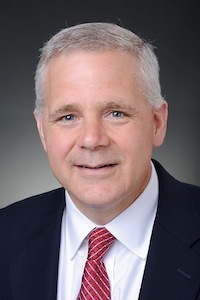Competition seeks interdisciplinary solutions to climate change
A new competition to spark innovative solutions related to climate change and its impacts is kicking off this Friday at the University of Wisconsin–Madison.
Individuals and groups from across campus and the broader community are invited to participate in a team-based challenge to design practical, high-impact solutions to mitigate or adapt to climate change. The Climate Change Solutions initiative launches Friday, April 4, with an opening mixer from 4-6 p.m. in the Town Center Atrium at the Wisconsin Institutes for Discovery.
The competition will continue through the year, guided by events to facilitate team formation, explore design-thinking and other innovative tools, and build ideas into concepts. Following a development phase, teams will present their proposals to a review board and winning groups will have the opportunity to put their proposed ideas into action.

Craig Benson
“Climate change is one of the most important issues we will face in the decades to come,” says Craig Benson, director of sustainability research and education for the Office of Sustainability. “At UW–Madison, we have the opportunity to address this head on by harnessing our intellectual capacity and creativity to create solutions with real impact.”
The free event, open to the public, will include appetizers, a short introductory program and networking opportunities for participants to meet potential collaborators and swap ideas. Pre-registration is recommended.
The effort, led by the UW–Madison Office of Sustainability in partnership with the Global Health Institute, Wisconsin Energy Institute, and Nelson Institute for Environmental Studies, is seeking people from all backgrounds, interests, and disciplines to provide a diverse pot of ideas and viewpoints.
“Tough problems like climate change demand innovation, usually crossing disciplinary boundaries, so we are encouraging people to form teams with members from multiple fields of expertise and from both campus and the community,” says project leader Darin Harris, of the UW–Madison Office of Quality Improvement. “Great solutions can come from unexpected partnerships.”
The Climate Change Solutions initiative focuses on moving from ideas to proof-of-concept, with the potential for adoption on a larger scale, Harris says. Proposed solutions could take the form of new products, policies, or social innovations.
“This is a chance for people to take on a big challenge and bring it down to Earth,” he says. “Together we can discover practical solutions to climate change.”




